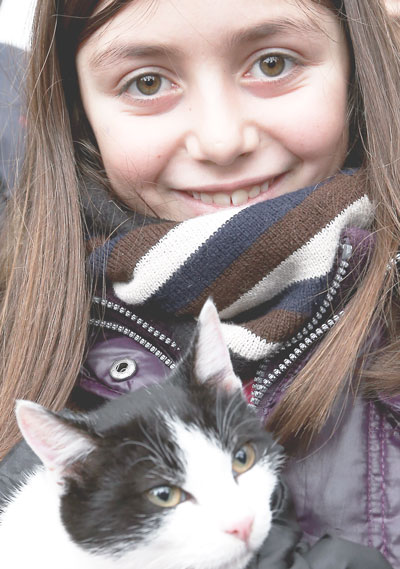I always had a special affinity toward St. Francis of Assisi. Maybe that’s because I was surrounded with animals all my life.
Growing up, we had a diverse cadre of pets become part of the family, from Molly, my childhood golden retriever whom we always took fishing, to our blind and deaf rescue dog Sonya, who taught me how to make the best of the cards you’re dealt. From cats to guinea pigs to hamsters, zebra finches, fish, lizards, praying mantises, and even Madagascar hissing cockroaches, I never had a single year in my life when I was without an animal companion.
Throughout college, I spent part of every summer working as a farmhand and camp counselor at Sprout Creek Farm in Poughkeepsie, N.Y. (Instagram:
@sproutcreekfarm). Daily farm chores included milking cows and goats, hosing down pigs during hot weather, collecting chicken eggs, and refilling the duck bath.
Each animal had beautiful fields to roam in, a unique name, and, best of all, a distinct personality. I could tell right away by the way she looked at me and the way she stamped her hooves when Kaboose the cow was having a bad morning.
What I think I like best about animals is how unabashedly they are themselves. They don’t give in to false pretenses, don’t give way to pressures, and don’t judge. They make known their desires and generally make plain their emotions. For instance, I know when my cat Shadow is irritated, tired, or happy
(@shadow_cat_tales). She doesn’t hide it. When she’s hungry in the morning, she crawls up my blanket and gently nibbles on my fingers to wake me up.
As I write this, she is begging me to take her to our backyard where she could prey upon sparrows and spiders (even with the loudest cat bell, she manages to slip silently through the grasses!).
What I learned most from my personal experiences with animals is this: They just want to be themselves, and they want to be respected and loved. We must remember that animals, all animals, are God’s creation.
Just because they are not made in His likeness does not mean that He didn’t take special care in crafting each and every one of them. They all have a purpose, just like we do. As such, they are not meant for us to exploit.
St. Francis would be appalled to see circuses, factory farms, cosmetic testing and the destruction of the Amazon rainforest, among other desecrations. These cruelties are not congruent with God’s plan for His kingdom on earth.
As God’s own work, just like us, animals are meant to be treated with respect, compassion and love. They are meant to be treated with dignity and deserve no less. God did not imbue His world with goodness to have it be harmed in the hands of His own likeness.
Just as we safeguard and protect a family heirloom from our great-grandparents, so must we do the same with our heavenly Father’s own precious creations.
Szczygiel is the assistant director of online learning at Fordham University’s Graduate School of Education.

